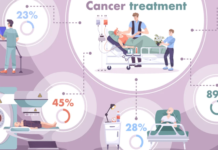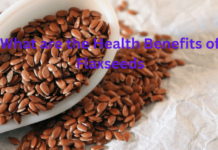It is true that for most of the people, it’s that time of the year they have to suffer from the issues of the common cold-like symptoms. However, it is not necessary that you face the issue of the common cold only. RSV, which stands for the Respiratory Syncytial Virus, is often mistaken as the common cold. Both of them have some common symptoms such as the runny nose and cough in addition to the fevers and congestion. Therefore, it is ideal for you to know the difference between a common cold and RSV.
Main Difference between Common Cold or RSV
Here is how to inform the between a cold and RSV:
A young child with a cold (or top respiratory tract infection) could have:
| • Congestion |
| • Fever (100.5 or higher) |
| • Cough (dry or wet sounding) |
| • Fussiness |
| • The poor urge for food |
| • Sneezing |
| • Runny nose |
A youthful child with RSV could have just about all of the above cold symptoms, but he or she will have the following symptoms as well:
| • Wheezing |
| • Head bobbing with inhaling and exhaling |
| • Fast breathing |
| • Flared nostrils |
| • Difficulty breathing |
| • Rhythmic grunting during inhalation and exhalation |
| • Inability to feed/eat |
How to avoid childhood obesity
About RSV:
RSV stands for respiratory syncytial virus infection. It is extremely similar in order to a bad cold. The symptoms are usually more or much less the same, it is extremely contagious, and this is common. The majority of children have had the issue of RSV at the age of two.
Don’t end up being alarmed about RSV, however. It is often very little an issue. But there are times when this can bring about pneumonia. You should furthermore be aware associated with that RSV sometimes hits babies hard.
What are the symptoms associated with RSV?
RSV generally means the same symptoms as the bad cold, which usually are:
- A fever.
- A cough.
- A sore throat.
- An earache.
- A runny nose.
Food and Minerals for Kids that Help in Growth
How RSV spreads
RSV may be spread whenever droplets containing the particular virus are sneezed into the atmosphere by a contaminated person. These tiny droplets can linger up, and if someone inhales the contaminants or maybe the particles get in touch with their nose, mouth area, or eye, they will become contaminated as well.
RSV is a virus so that as all viruses, it causes a good infection. RSV episodes your nose, neck, eyed and also lungs, eyes, throat, plus lungs, just like a cold. And like a cold, it spreads simply by sneezing, sharing drinks, and by people touching each other, kissing, and a lot more.
There are actually several different varieties of RSV, so it not very likely that your body can become completely immune to it. The fact is usually that folks sometimes get it more than once, even during the same particular season.
Are you worried about RSV?
Infection with the respiratory syncytial virus can sometimes be serious, especially in premature children. Older grownups and grownups with heart and lung illnesses may develop difficulties from RSV.

May RSV Virus Contamination be Prevented?
Researchers are working on developing RSV vaccines, yet up to now, these are usually not available. However, there are actions that can be taken in order to help prevent the particular spread of RSV. More specifically, men and women who have RSV symptoms should:
- Cover their coughs plus sneezes
- Wash their hands often plus with soap plus water
- Never share drinking glasses plus eating items
- Avoid kisses
About Common cold
It is really simple for the cold virus to spread with the air. Is actually probably one associated with the most transmittable viruses around since you can certainly capture the virus by just breathing in the contaminated atmosphere or touching the contaminated object? After that, the virus discovers its way into your nose and sinus cavities.
Do you know the symptoms of the particular common cold?
The signs and symptoms of the common cold can vary pretty a little bit, and many symptoms will vanish in five in order to seven days even though some symptoms, like the cough, can final up to fourteen days.
Common symptoms might include a tickle at the back of the throat, throat infection, mild body soreness, headache, mild chills, blocked ear pipes, minor fatigue, coughing, nasal congestion, slight fever, sneezing, loss of appetite, watery eye and a runny nose.
What else may I do in order to prevent catching or even to get relief from the common cold?
- Frequently washes both hands and don’t contact your eyes, nasal area, or mouth.
- Rest and obtain enough sleep.
- Control and minimize stress.
- Physical exercise will keep your defence mechanisms working properly.
- Eat a healthy diet. Eat more vegetables and fresh fruits.
- Chicken soup with ginger, scallions, and rice noodles might help lessen the particular symptoms.
- Sodium water gargle may help with a sore throat.
- Humidify the environment with the humidifier to create your sore throat less sore.
- Include your mouth plus nose and sneeze right into a tissue or on your shirt outer to prevent getting the particular virus airborne. Wash your hands soon after.
- Use your own cups, forks, and spoons.
- Use your own encounter towel and avoid sharing it.
- Try to stay away from those who have got the cold.
- Disinfect the restroom regularly if you reveal bathrooms.
- If possible, sleep in a separate room for the duration associated with the cold.
Hale and hearty children and grownups don’t necessarily need to be treated by new healthcare professional for the issue of RSV. Yet, you need to talk to your current child’s paediatrician at any time you could have concerns or perhaps questions about your child’s health. It is true that the kids are at the highest risk for complications from RSV, so you have to be careful about them.
A person won’t have the ability to explain to the difference in between a cold and respiratory syncytial computer virus in your home. You must go to be able to a healthcare professional for the purpose of determining whether or not it’s an RSV or Cold.











